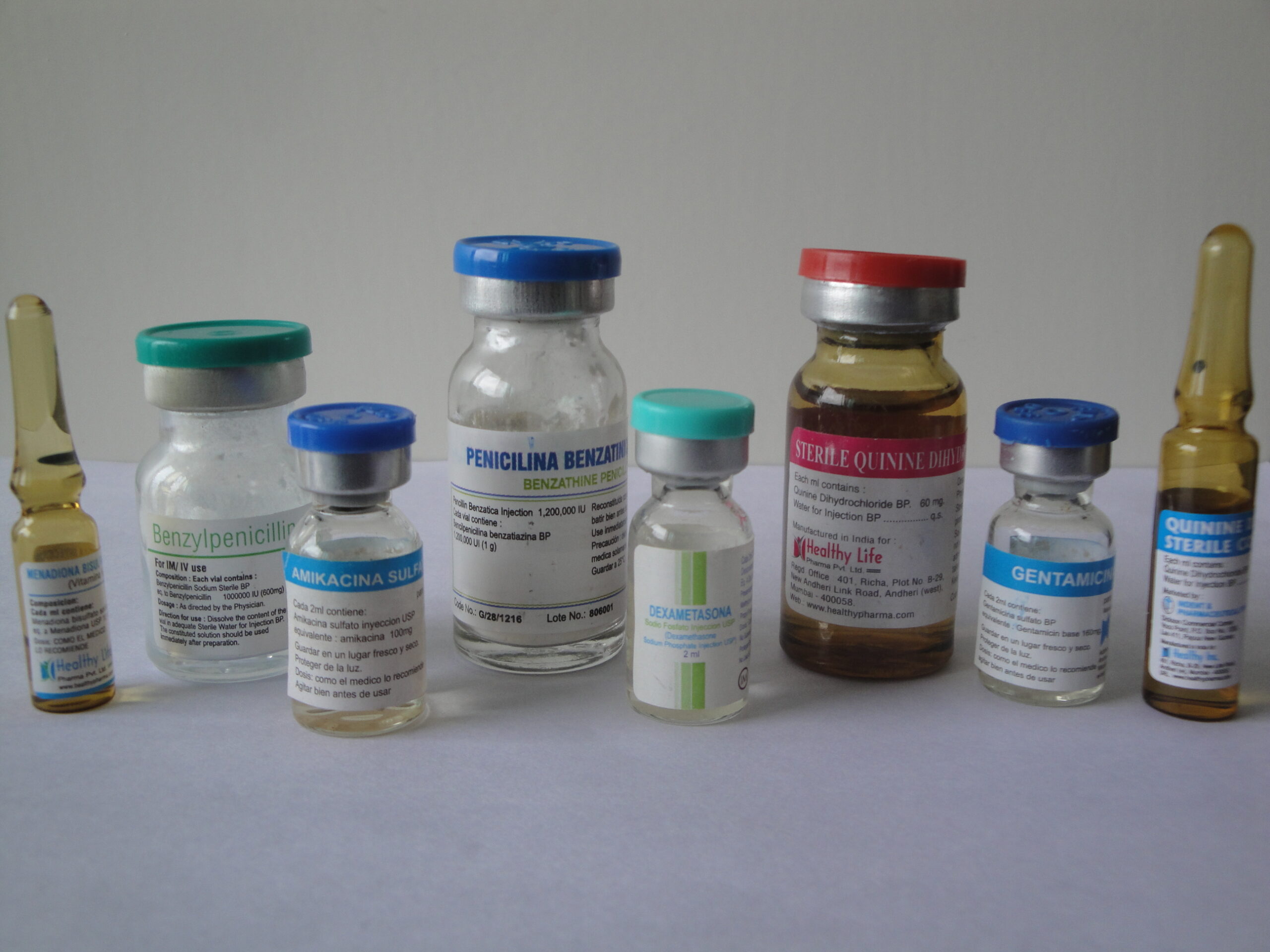Description
Phenyl Butazone & Sodium Salicylate veterinary injection
Phenylbutazone and sodium salicylate are both non-steroidal anti-inflammatory drugs (NSAIDs) used in veterinary medicine to alleviate pain and reduce inflammation in animals. They are often administered as injections for more immediate and effective relief.
Phenylbutazone:
Function: Phenylbutazone is a potent NSAID with anti-inflammatory, analgesic, and antipyretic properties. It is commonly used to manage musculoskeletal conditions and alleviate pain associated with inflammation.
Usage in Veterinary Medicine: Phenylbutazone is frequently employed in horses, dogs, and other large animals to treat conditions such as arthritis, lameness, and other inflammatory joint disorders.
Administration: It is typically administered through intravenous (IV) or intramuscular (IM) injection.
Dosage: Dosage can vary depending on the species, weight, and specific condition being treated. It is crucial to follow the veterinarian’s prescription and guidelines.
Sodium Salicylate:
Function: Sodium salicylate is a salicylate NSAID, and it works by reducing inflammation, pain, and fever.
Usage in Veterinary Medicine: Sodium salicylate can be used in veterinary medicine for conditions where anti-inflammatory and analgesic effects are needed. However, it is important to note that aspirin (acetylsalicylic acid) is more commonly used in small animals due to its better safety profile compared to sodium salicylate.
Administration: Like phenylbutazone, sodium salicylate is typically administered through intravenous or intramuscular injection.
Dosage: Dosage will depend on factors such as the animal’s weight and the specific condition being treated. It is crucial to follow the veterinarian’s instructions closely.
It is important to use these medications under the guidance of a veterinarian. Both phenylbutazone and sodium salicylate can have potential side effects, and their use should be carefully monitored to avoid complications. Additionally, the choice of NSAID may depend on the specific requirements of the patient and any pre-existing health conditions. Always consult with a veterinarian to determine the most appropriate treatment plan for the individual animal.
Phenylbutazone and sodium salicylate are both used in veterinary medicine to address pain and inflammation in animals. Here are some common usages for each medication:
Phenylbutazone:
Conditions Treated:
Arthritis: Phenylbutazone is frequently prescribed for managing arthritis and other inflammatory joint conditions in horses and large animals.
Lameness: It is used to alleviate lameness associated with musculoskeletal issues.
Inflammatory Disorders: Phenylbutazone can be employed to reduce inflammation and pain in various inflammatory conditions.
Administration:
Phenylbutazone is typically administered through intravenous (IV) or intramuscular (IM) injection.
Veterinarians may provide loading doses initially, followed by maintenance doses as needed.
Dosage:
Dosage varies based on the animal’s weight, the severity of the condition, and the veterinarian’s assessment.
It is crucial to follow the prescribed dosage and duration to minimize the risk of side effects.
Species:
Commonly used in horses and large animals, but it can be used in some instances for dogs.
Sodium Salicylate:
Conditions Treated:
Pain and Fever: Sodium salicylate can be used for pain relief and reducing fever in animals.
Inflammatory Conditions: It has anti-inflammatory properties and may be used in certain inflammatory conditions.
Administration:
Similar to phenylbutazone, sodium salicylate is administered through intravenous (IV) or intramuscular (IM) injection.
Dosage:
Dosage will depend on factors such as the species, weight, and specific condition being treated.
It is crucial to follow the veterinarian’s prescription closely to avoid overdosing or underdosing.
Species:
Sodium salicylate is used in various species, including horses and sometimes dogs. However, aspirin (acetylsalicylic acid) is more commonly used in small animals due to its better safety profile.
It’s important to note that while these medications can be effective in managing pain and inflammation, they also come with potential side effects. Always consult with a veterinarian before administering any medication to ensure it is appropriate for the specific animal and condition. Veterinarians will consider the individual health status, potential interactions with other medications, and any contraindications before prescribing these drugs. Regular monitoring and follow-up with the veterinarian are crucial during the course of treatment.
Phenylbutazone and sodium salicylate are both used in veterinary medicine to manage pain and inflammation in animals. Here are some common usages for these medications:
Phenylbutazone:
Conditions Treated:
Arthritis: Phenylbutazone is commonly prescribed for the treatment of arthritis in horses and dogs.
Lameness: It is used to alleviate lameness associated with musculoskeletal disorders.
Inflammatory Joint Disorders: Phenylbutazone is effective in managing conditions involving inflammation in the joints.
Dosage Forms:
Phenylbutazone is available in injectable forms for intravenous (IV) or intramuscular (IM) administration.
Administration:
Typically administered by a veterinarian, either as a single dose or as part of a treatment plan.
Dosage is based on the animal’s weight, and the duration of treatment is determined by the specific condition.
Sodium Salicylate:
Conditions Treated:
Inflammatory Conditions: Sodium salicylate can be used to reduce inflammation in various conditions.
Fever: It may be prescribed to lower fever in certain cases.
Dosage Forms:
Available in injectable forms for IV or IM administration.
Administration:
Administered by a veterinarian based on the animal’s weight and the specific condition being treated.
Careful monitoring of dosage and duration is important to avoid potential side effects.
It’s essential to note that while both medications are used for similar purposes, the choice between phenylbutazone and sodium salicylate, as well as the dosage and duration of treatment, will depend on the veterinarian’s assessment of the individual animal’s condition and health status.
As with any veterinary medication, these drugs should only be used under the guidance and prescription of a licensed veterinarian, who will consider the specific needs and health conditions of the animal in question. Regular monitoring for potential side effects is also crucial during the course of treatment.



